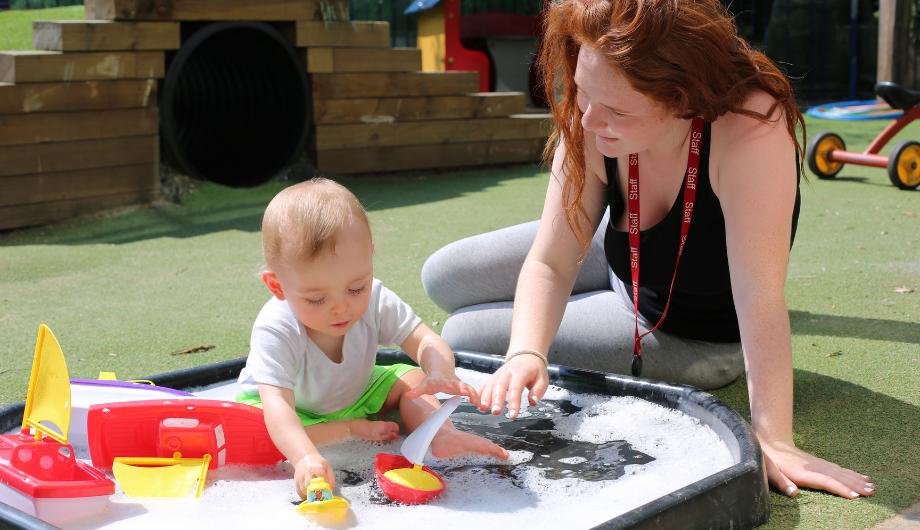
The impact of the mobile phone
It is Good to Talk! The signs of things going wrong in society are usually first evident in small children. The widespread dependence on Smartphones is…
September 23rd 2013
The sector met last weekend and everyone uploaded their solutions onto the #OfstedBigConversation website. They also kindly sent their feedback to me and I was amazed at the coherency and similarity of responses.
The following is a summary of the key “asks” for Ofsted. These are broad brush changes to the process of inspection. These were the basis of the #OfstedBigConversation, quite separate from the personal stories, grievances and appeals with which many individuals are currently engaged and will continue to do so with support from colleagues, network members and their membership organisations.
Ofsted have indicated a willingness to have a meeting. I would suggest we ask for a meeting in each region with the Ofsted Regional Lead. This way Ofsted gets to meet quite a few people who can provide them with data from each area and support the central request for the outlined changes to the inspection process. If these meetings are held, I think they should be led by the Chairs with members of the network and each region has to provide data and general case studies to highlight the issue and support the reason for change. As ever we need to maintain a calm, rational and professional approach. Negotiation is more likely to work when both people have something to offer. Just imagine we are going to marriage guidance! So in preparation here is a letter to begin the mediation process. A little touch of Hope Springs.
Dear Ofsted
I am very pleased to hear you might want to meet us. We have been moved to action since the process of inspection has become quite antagonistic and unfriendly. We want to resolve the situation so we can develop a collaborative and constructive learning community where we can have a mutual respectful relationship that allows us all to share a vision of high quality practice for all children within a spirit of inquiry and improvement.
To achieve this we want to be inspected by knowledgeable inspectors with appropriate experience and knowledge for different settings such as childminders, forest school, Montessori etc. If possible we would like two inspectors at a time. All inspectors should be trained by one organisation. Train them not just on their role in collecting evidence to show compliance but on the process of inspection. This means them to become effective communicators with an ability to apply emotional intelligence in quite stressful circumstances. We also want to be able to refuse an inspection from an inspector who has a clear conflict of interest such as local provider or ex member of staff.
Please stop complaint initiated inspections from complaints that go back ten years. It’s unhelpful, unfair and it means that all the scheduled inspections are now overdue and it’s much better to focus on the here and now. Track complaints and when you turn up tell us why we are being inspected and what the complaint is. Don’t be obtuse and hide behind anonymity. Help us manage malicious complaints. Do not create a culture where people can make unfounded complaints under a cloak of anonymity. This is dangerous for us all. If a complaint is not substantiated, close it.
Allow inspectors to give clear feedback and not make them so anxious that they are unable to make a recommendation because they are fearful of the Quality Assurance approach. Give feedback at a suitable time with a member of staff or support person present in addition to the manager or child-minder.
Inspectors should not need permission to grant outstanding. Is there a quota? If so, tell us. When QA changes a grade then the outcome should be null and void.
Explain who QA are and define their authority.
Ofsted, please stick to your own guidance and timelines.
Don’t be side-tracked with knee jerk reactions to bad press. Communicate with the settings and create a culture which allows for calm, thoughtful and reflective responses. Practice what you preach and reflect and consider the consequences before you act.
The Evaluation Schedule is not clear and not consistent too many subjective/opinions in what is Good/ Outstanding so it’s hard to know what to implement to be seen as Outstanding. So why bother with grades if they are causing such confusion and disruption. Keep it simple either we require improvement or we don’t. Compliant or non-compliant.
Do you realise the implication of downgrading to a setting can have for those children in the setting who may find themselves with no nursery? Come back and inspect within three months so children can stay and improvements can be monitored. Form a relationship with the local authority that will support the setting. It would triangulate the approach and help embed changes.
Finally, there is no point having a complaints or appeals system if you are managing it yourself. Nobody trusts an organisation that oversees itself. Create a role for external members of the panel who are early years trained. Don’t publish reports while there is a complaint or appeal pending. It’s unfair. Create a clear process which is consistent. When a complaint is received by OFSTED, they should notify the provider and ask for a response and how they intend to resolve this. Prospects determine that response has to be 24 hours from us – OFSTED take up to 20 days. This is not fair; we need a reasonable amount of time to put a response together.
Tidy up your ICT infrastructure with tokens for SEF and a central search engine. Have you any idea how much information does not come to us yet not having it available may leave us quite ill-informed.
Now there are many other small changes that providers have requested which would improve the process of inspection. These are best addressed at a regional forum.
In summary, Ofsted we want to get along with you but you need to change your tone. There is no need to be so aggressive. We are on the same side. We care about children, this is why we do the job we do. Of course, every sector has some bad apples but there is no need to be so negative to everyone. I am sure you would not want people to see themselves as Ofsted Survivors bonding through trauma. I suspect that you want to be assured that a thorough inspection was done, leaving people very clear about what was good, bad and ugly.
Let’s get on with the mediation process.
Warmest Regards
The Early Years Sector

It is Good to Talk! The signs of things going wrong in society are usually first evident in small children. The widespread dependence on Smartphones is…

Talking Early Years – In Conversation with Dr Ger Graus The power of play is recognised within the Early Years sector as essential to children’s development. Playing is…

How Early Years staff can help children cope with imprisonment of a loved one In my life many of my connections have been made through serendipity. In this case…